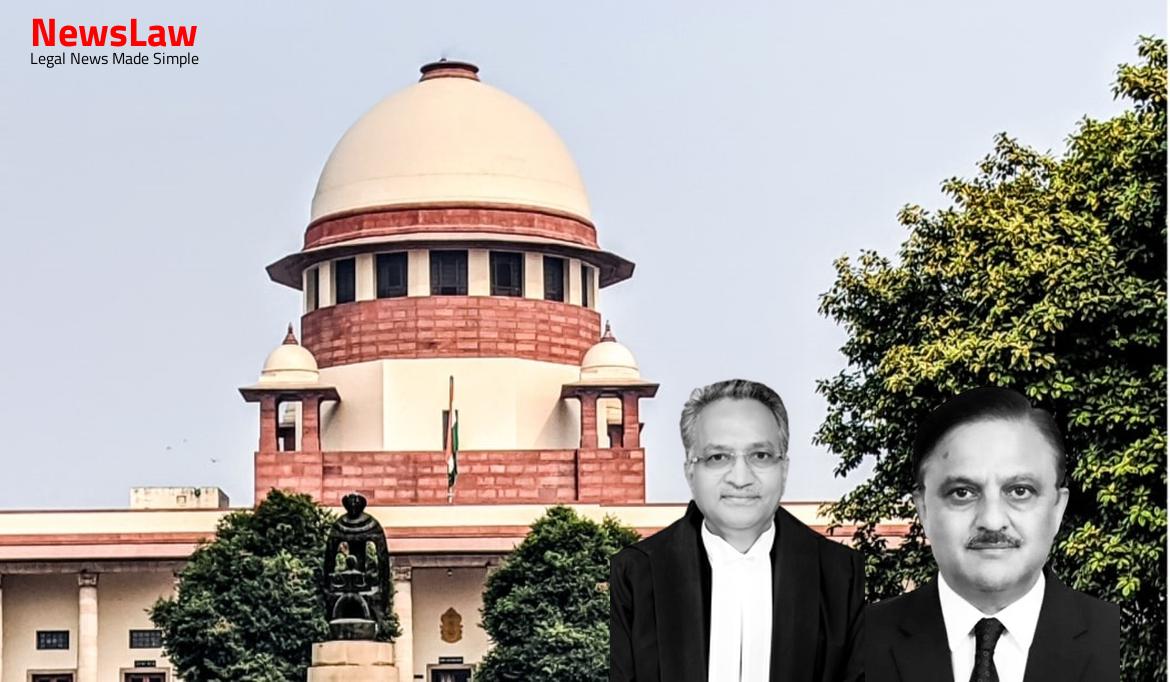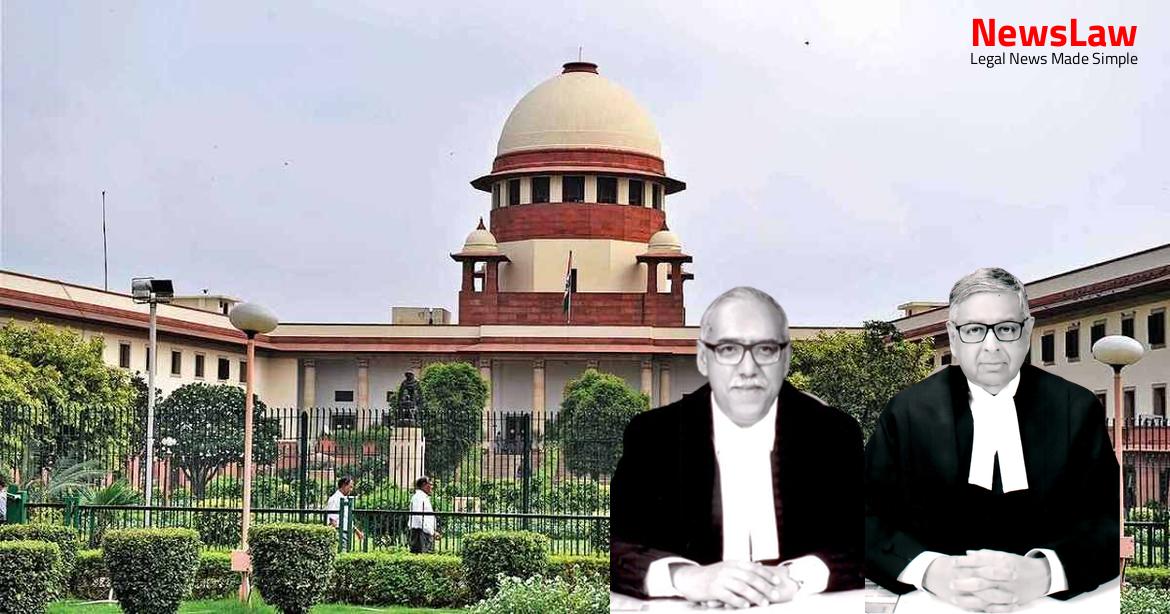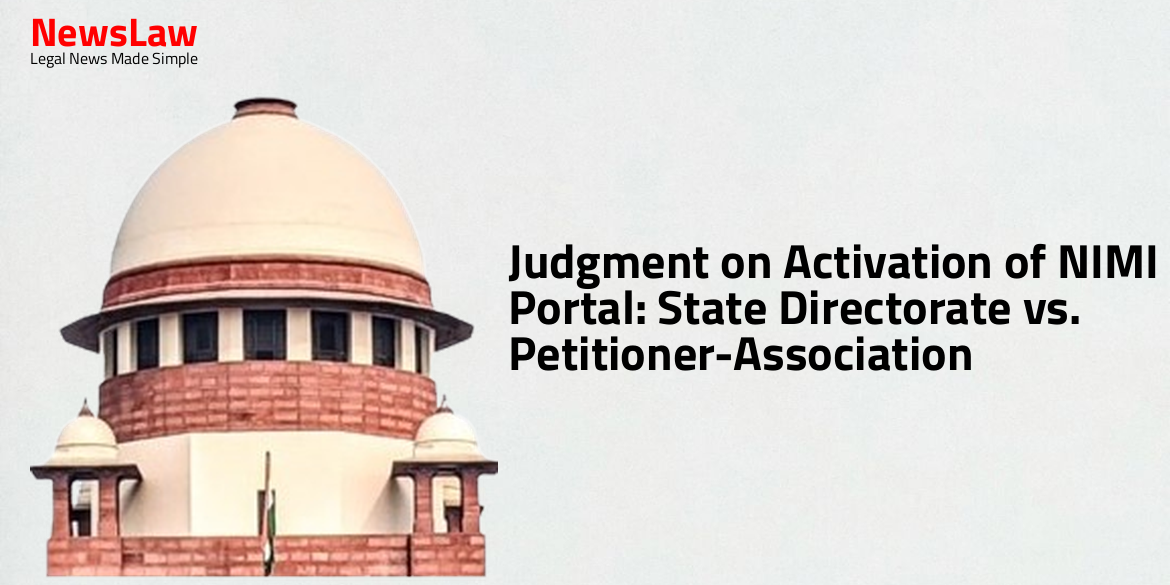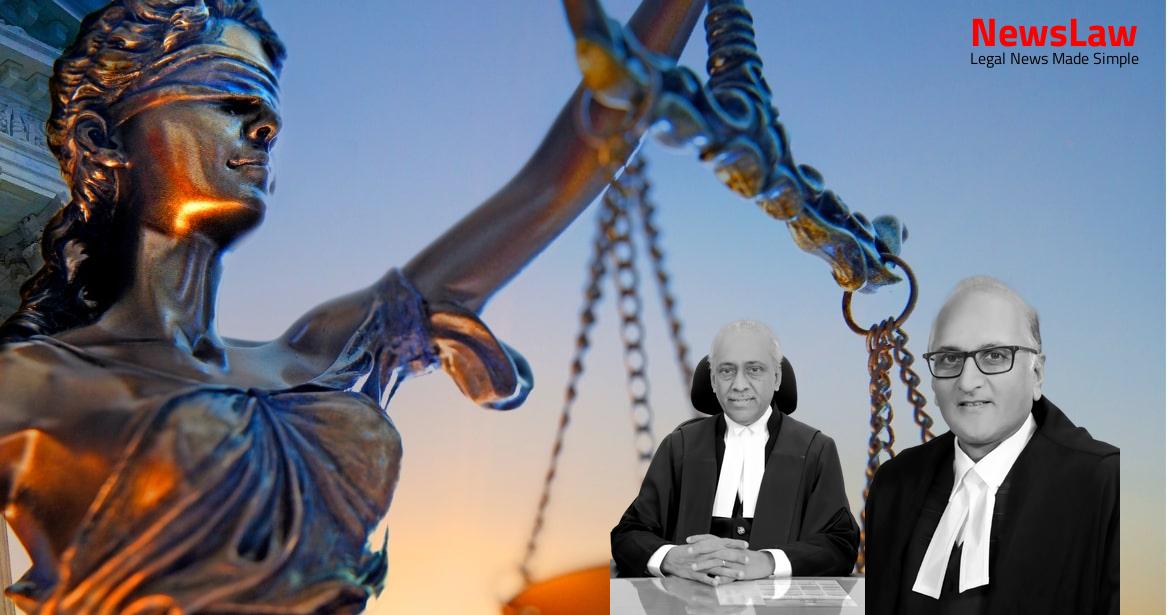In a recent legal case concerning the interpretation of the Land Acquisition Act, the court delved into the nuances of invoking the urgency clause and determining compensation rates. The court’s analysis focused on the legality of the actions taken by the authorities, particularly regarding the invocation of the urgency clause under Section 17. Stay tuned to learn more about the court’s reasoning and the implications of their decisions in this complex land acquisition scenario.
Facts
- The State government issued a notification under Section 4 of the Land Acquisition Act, 1894 on 7 November 2007.
- The urgency clause under Section 17 of the 1894 Act was invoked by the State government.
- An order was passed under sub-section (4) of Section 17 to dispense with an inquiry under Section 5A of the Act.
- The New Okhla Industrial Development Authority (NOIDA) was notified through the said notification.
- Two separate awards were made on 12 January 2011 and 31 December 2013 with different rates of compensation.
- Ancestral tenure holders who accepted compensation as per the Karar Niyamawali were paid at a rate of Rs.1,000/- per square meter.
- A declaration under Section 6 of the 1894 Act was issued by the State government on 17 March 2008 for the acquisition of lands.
- Ancestral tenure holders who agreed to compensation as per the Karar Niyamawali were paid at a rate of Rs.1,295/- per square meter.
- Normal tenure holders who agreed to compensation as per the Karar Niyamawali were paid at a rate of Rs.1,490/- per square meter.
- Possession of a specific area of hectares was taken over by the State Government on 7 June 2008.
- The High Court found the action of the State Government in invoking the urgency clause to be illegal.
- The High Court did not quash the declaration made under Section 6 of the 1894 Act and the awards.
- Relief was to be balanced between individual rights and public interest due to substantial development work on the acquired lands.
- Land owners/persons who did not accept compensation under Karar Niyamawali should be paid compensation according to the 2013 Act.
- Market value under the 2013 Act should be determined as of the date of the judgment.
Also Read: Analysis of Compensation Method in Land Acquisition Case
Arguments
- The learned senior counsel argued that the reasons given in the writ petitions for the delay were erroneous and inadequately explained.
- He contended that it was too late for the writ petitioners to challenge the urgency clause by invoking the High Court’s jurisdiction under Article 226 of the Constitution.
- The counsel argued against the High Court’s direction to pay compensation as per the 2013 Act based on the market value on the date of the High Court judgment, deeming it illegal.
- In support of the acquiring body, it was submitted that the writ petitions suffered from significant delay and laches, warranting dismissal.
- The land owners who had not received compensation under the Karar Niyamawali supported the High Court’s judgment as equitable, balancing their rights with those of the acquiring body.
- On the other hand, the land owners who accepted compensation under the Karar Niyamawali argued against the High Court’s distinction between them and those who did not accept compensation, especially after finding the urgency clause invocation illegal.
- The counsel highlighted the belated filing of petitions by land owners between 2011 and 2014 despite the urgency clause being invoked in 2008, questioning the delay.
- Lastly, the reliance placed by the High Court on a previous case was disputed, claiming that the circumstances in the present case were different and did not warrant the same outcome.
- Submission made by the land owners that arbitrary distinction should not have been made by the High Court
- Citing a decision in the case of Radhey Shyam to argue that an illegal action under Section 17 of the 1894 Act renders the acquisition unsustainable
- Mention of the decision in Garg Woollen Private Ltd. v. State of U.P. & Ors. which followed the principles set in Radhey Shyam
- Referring to a three-Judge Bench decision in Savitri Devi etc. v. State of U.P. & Ors. where a direction was given to enhance the market value by 64.7%
Also Read: Legal Analysis in a Landmark Case
Analysis
- The High Court declined to quash the acquisition proceedings and instead directed payment of compensation in accordance with the 2013 Act.
- The Supreme Court upheld the High Court’s decision, considering the unique circumstances and substantial development carried out on the acquired lands.
- The possession of the acquired land was taken over in two phases in June 2008 and 2013, with no development having occurred on the acquired lands.
- The Court emphasized that the decision in the case of Savitri Devi was limited to its specific fact situation and would not set precedent for future cases.
- The High Court’s finding that the urgency clause was wrongly invoked was acknowledged, but the acquisition proceedings were maintained with improved compensation under the 2013 Act.
- The High Court exercised discretion in granting relief, considering the belated filing of writ petitions and the development and allotment of the acquired land to third parties after possession was handed over.
- All writ petitions were filed well after the declaration under Section 6, leading to the High Court’s decision to apply the 2013 Act for compensation calculation.
- The High Court’s direction for payment of market value as per the 2013 Act to land owners who did not accept previous compensation was deemed appropriate.
- Invocation of urgency clause under Section 17 was found to be invalid and illegal.
- The process followed by the authorities was not in accordance with the law.
- The Court concluded that the invocation of the urgency clause was an abuse of power.
- The actions of the authorities were deemed to be arbitrary and not justified.
- High Court found no error in the view taken regarding land owners who accepted compensation under Karar Niyamawali.
- Allegations in the contempt petition denied by the acquiring body.
- Land owners voluntarily accepted compensation without any grievance under an agreement in terms of Karar Niyamawali.
- Land owners filing writ petitions after considerable time was viewed as unjustified after accepting compensation.
- Impugned judgment is confirmed by the court.
- Relief of grant of market value in terms of the 2013 Act could be denied to land owners who accepted compensation under Karar Niyamawali.
- No necessity of action based on the contempt petition as per court decision.
Also Read: Legal Challenges under Prevention of Money Laundering Act
Decision
- The contempt petition filed by the appellants in Civil Appeal arising out of Special Leave Petition (Civil) No. 15760 of 2020 is disposed of.
- The appellants alleged that the acquiring body started construction in violation of an interim order passed by the Court on 28 January 2021.
- Based on the above allegation, the appeals are dismissed as no error was found in the impugned judgment.
Case Title: NOIDA INDUSTRIAL DEVELOPMENT AUTHORITY Vs. RAVINDRA KUMAR (2022 INSC 532)
Case Number: C.A. No.-003762-003762 / 2022



